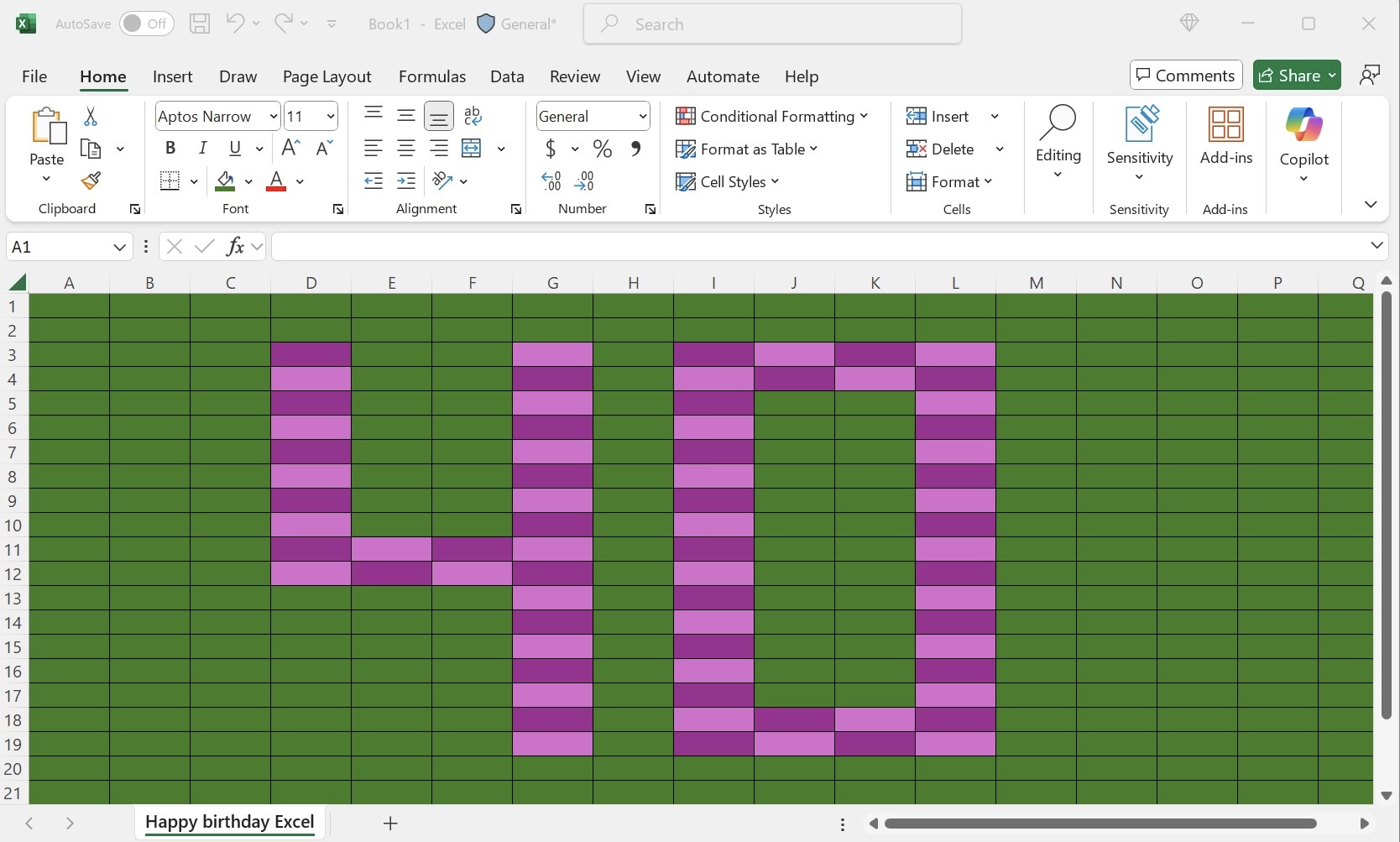Microsoft Excel turned 40 and almost nobody noticed - world's most popular spreadsheet now faces tough competition from Google Sheets after crushing Lotus 1-2-3 and Borland Quattro Pro
Four decades on, the spreadsheet which changed computing continues to adapt

- Microsoft Excel celebrates 40 years as the spreadsheet that reshaped business and personal computing
- New AI-powered tools and creative communities extend Excel’s uses far beyond accounting
- Google Sheets presents the most serious challenge to Excel’s dominance
Microsoft Excel recently celebrated its 40th anniversary (although with old software it can often be hard to pin down an actual launch date), cementing its place as one of the most recognizable pieces of software in the world.
From finance departments to classrooms, Excel has become a universal spreadsheet tool for organizing, analyzing and presenting data. Everyone in an office environment has likely encountered it, if they haven’t fully mastered it.
The idea of the modern spreadsheet began in 1979 with VisiCalc, created by Dan Bricklin and Bob Frankston for the Apple II. That became one of the first killer apps, convincing companies to purchase computers just to run it.
Excel excels
VisiCalc’s early success faded after Lotus 1-2-3 introduced features such as macros, which allowed users to automate repetitive tasks. Lotus soon dominated the market, only to be overtaken by Microsoft.
Excel first appeared on the Apple Macintosh in 1985. It sported a graphical interface from the start, unlike its text-based competitors.
Microsoft then ported Excel to Windows, where it quickly gained ground against Lotus and Borland’s Quattro Pro.
By the early 1990s, Excel had established itself as the clear market leader, a position it has clung on to ever since.
Sign up to the TechRadar Pro newsletter to get all the top news, opinion, features and guidance your business needs to succeed!
Over the years, Excel has gained features that extend far beyond simple number crunching.
The introduction of Visual Basic for Applications in the 1990s gave users the ability to write custom functions and automate complex workflows.
Later updates included pivot tables, 3D charts, and eventually the ribbon interface, which changed how users navigated commands.
While business remains its core, Excel’s reach has stretched into unexpected areas.
“There are so many fascinating ways people use Excel - far beyond the typical finance or accounting scenarios,” said Cuong Pham, who manages a global community of fans. Users have built art, games and even music inside its grid of rows and columns.
Excel has also inspired competitions. Latvian consultant Andrew Grigolyunovich founded the Excel World Championship, which became an arena event in Las Vegas.
Today, Excel has Copilot and AI features like Agent Mode, where users can generate full spreadsheets through simple prompts, and we can expect Microsoft to add more such functionality going forward.
Excel’s dominance is no longer what it once was however. Google Sheets, for example, has become the spreadsheet of choice in many classrooms and small businesses with its cloud integration and real-time collaboration.
Its lighter, browser-based approach appeals to a generation less tied to desktop software, and of course it’s free.
Microsoft has responded with Excel on the web, which mirrors much of the traditional program while adding online access, but Sheets remains the default option for many who start their work in a browser.
As Excel turns 40, it faces the challenge of adapting to a future where data work increasingly happens in shared online environments.
How well Microsoft integrates AI and advanced collaboration features into its software stalwart could decide whether it continues to lead or share the stage with Google Sheets.
You might also like
- These are the best online collaboration tools around

Wayne Williams is a freelancer writing news for TechRadar Pro. He has been writing about computers, technology, and the web for 30 years. In that time he wrote for most of the UK’s PC magazines, and launched, edited and published a number of them too.
You must confirm your public display name before commenting
Please logout and then login again, you will then be prompted to enter your display name.